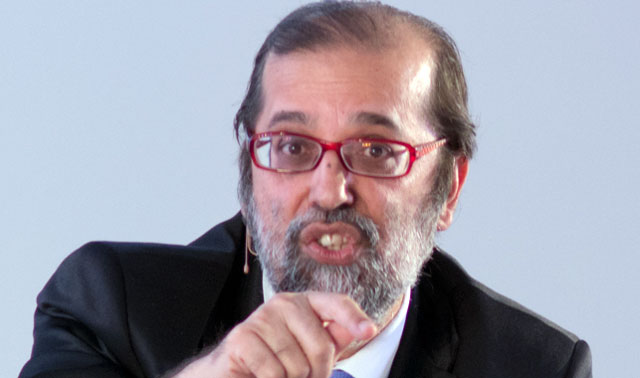
Naspers chairman Koos Bekker said months before Yunus Carrim was fired as communications minister that he would not be reappointed to the job.
This startling allegation is contained in a report by the Mail & Guardian on Friday, in which the newspaper claims to have had sight of a memorandum dated March 2014 and sent by Bekker to senior management at Naspers subsidiary MultiChoice claiming Carrim would not return as minister after the May 2014 general election.
The newspaper said that Bekker, in the memo, wrote that Carrim was “temperamentally unsuited to high political office” and was “in the power of e.tv”.
MultiChoice has declined to comment, with spokesman Jackie Rakitla saying only: “Our policy is not to comment on speculation.”
The article claims that Naspers overstepped the mark between lobbying and playing a direct role in determining government policy on digital terrestrial television.
MultiChoice and Carrim fell out spectacularly early last year after the pay-television broadcaster took out full-page newspaper advertisements in three Sunday newspapers, accusing Carrim of pandering to “certain narrow commercial interests”. Carrim in turn accused MultiChoice of being a “bullying monopoly” who “cannot claim to speak for the poor”.
MultiChoice saw red over Carrim’s decision to include a conditional access system based on encryption in the set-top boxes that government intended subsidising for as many as 5m poorer households, even though the minister proposed that broadcasters wanting to use the system would have to pay for it.
A fight between MultiChoice and e.tv has dragged on for years over the use of encryption in free-to-air set-top boxes. E.tv insists it’s crucial that it be included to ensure free-to-air broadcasters can get access to the latest content in order to compete more effectively with DStv.
MultiChoice, on the other hand, argues that it is an unnecessary cost and would lead to unfair competition in that government would subsidise the entry of new pay-TV players into the South African market.

Carrim has repeatedly denied he was under e.tv’s influence and that the December 2013 decision on set-top boxes was taken by the cabinet and was not done on a “personal whim”.
The former minister told the Mail & Guardian this week that being under e.tv’s influence would amount to a crime. “The national fiscus wasn’t my personal money box that I could just use to benefit a particular company I chose,” he is quoted as saying.
After the election, President Jacob Zuma announced he was splitting the communications department in two, creating a new department of communications under minister Faith Muthambi. Carrim was removed and replaced at what became the telecoms & postal services department by former state security minister Siyabonga Cwele. Carrim is now chair of parliament’s portfolio committee on finance.
As communications minister, Muthambi quickly set about reversing the 2013 policy presented to cabinet by Carrim. Her final policy on broadcasting digital migration specifically stated that encryption would not be included in the government-subsidised set-top boxes. In doing so, she defied an ANC NEC decision that encryption should form part of the roll-out.
E.tv has now taken Muthambi’s final policy on review at the high court in Pretoria. — © 2015 NewsCentral Media




